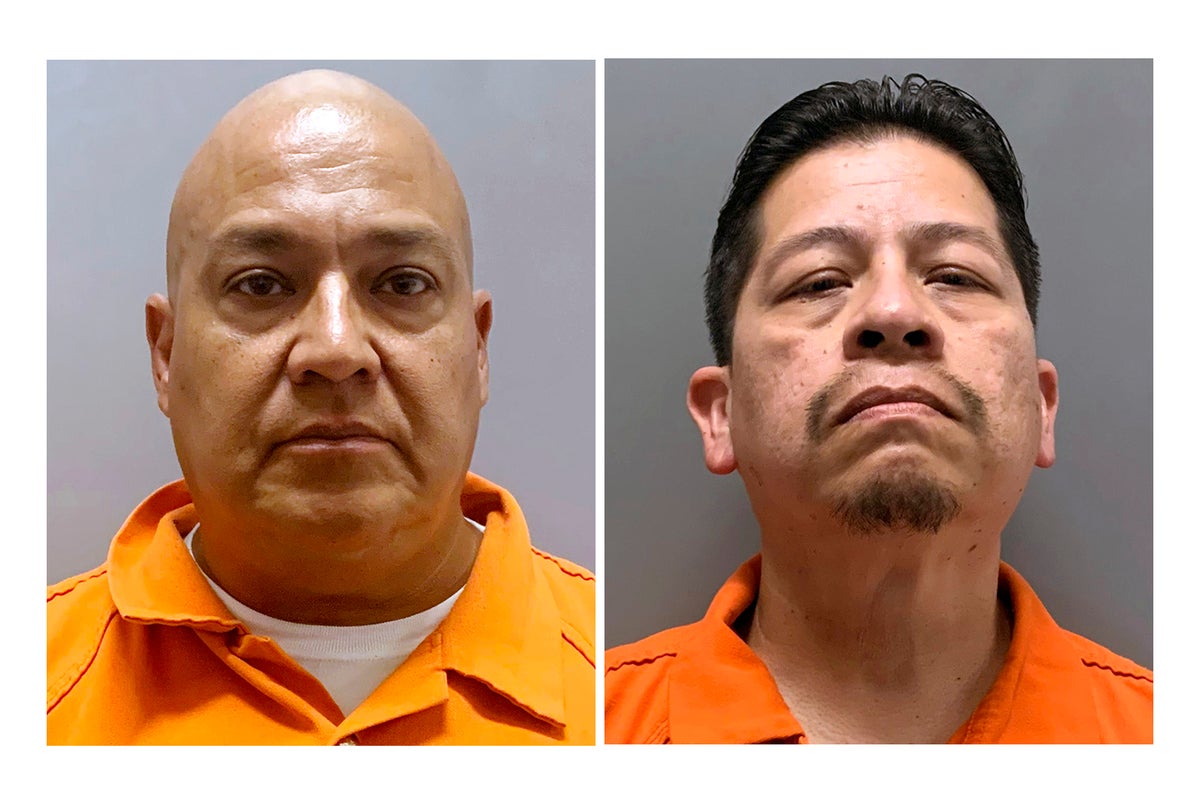
Two indictments against former Uvalde, Texas, schools police officers are the first charges brought against law enforcement for the botched response that saw hundreds of officers wait more than an hour to confront an 18-year-old gunman who killed 19 fourth-grade students and two teachers at Robb Elementary.
For some Uvalde families, who have spent the last two years demanding police accountability, the indictments brought a mix of relief and frustration. Several wonder why more officers have not been charged for waiting to go into the classroom, where some victims lay dying or begging for assistance, to help bring a quicker end to one of the worst school shootings in U.S. history.
Former Uvalde schools police Chief Pete Arredondo and former Officer Adrian Gonzales were indicted on June 26 by a Uvalde County grand jury on multiple counts of child endangerment and abandonment over their actions and failure to immediately confront the shooter. They were among the first of nearly 400 federal, state and local officers who converged on the school that day.
“I want every single person who was in the hallway charged for failure to protect the most innocent,” said Velma Duran, whose sister Irma Garcia was one of the teachers killed. “My sister put her body in front of those children to protect them, something they could have done. They had the means and the tools to do it. My sister had her body.”
Uvalde County District Attorney Christina Mitchell has not said if any other officers will be charged or if the grand jury's work is done.
Here are some things to know about the criminal investigation into the police response:
The Shooting
The gunman stormed into the school on May 24, 2022 and killed his victims in two classrooms.
More than 370 officers responded but waited more than 70 minutes to confront the shooter, even as he could be heard firing an AR-15-style rifle.
Terrified students inside the classrooms called 911 as agonized parents begged for intervention by officers, some of whom could hear shots being fired while they stood in a hallway. A tactical team of officers eventually went into the classroom and killed the shooter.
Scathing state and federal investigative reports on the police response have catalogued “cascading failures” in training, communication, leadership and technology problems.
The Charges
The indictment against Arredondo, who was the on-site commander at the shooting, accused the chief of delaying the police response despite hearing shots fired and being notified that injured children were in the classrooms and a teacher had been shot.
Arredondo called for a SWAT team, ordered the initial responding officers to leave the building and attempted to negotiate with the 18-year-old gunman, the indictment said. The grand jury said it considered his actions criminal negligence.
Gonzales was accused of abandoning his training and not confronting the shooter, even after hearing gunshots as he stood in a hallway.
All the charges are state jail felonies that carry up to two years in jail if convicted.
Arredondo said in a 2022 interview with the Texas Tribune that he tried to “eliminate any threats, and protect the students and staff.” Gonzalez's lawyer on Friday called the charges “unprecedented in the state of Texas” and said the officer believes he did not break any laws or school district policy.
The first U.S. law enforcement officer ever tried for allegedly failing to act during an on-campus shooting was a campus sheriff’s deputy in Florida who didn’t go into the classroom building and confront the perpetrator of the 2018 Parkland massacre. The deputy, who was fired, was acquitted of felony neglect last year. A lawsuit by the victims’ families and survivors is pending.
The Lawsuits
The families are pursing accountability from authorities in other state and federal courts. Several have filed multiple civil lawsuits.
Two days before the two-year anniversary of the shooting, the families of 19 victims filed a $500 million lawsuit against nearly 100 state police officers who were part of the botched response. The lawsuit accuses the troopers of not following their active shooter training and not confronting the shooter. The highest ranking Department of Public Safety official named as a defendant is South Texas Regional Director Victor Escalon.
The same families also reached a $2 million settlement with the city under which city leaders promised higher standards for hiring and training local police.
On May 24, a group of families sued Meta Platforms, which owns Instagram, and the maker of the video game Call of Duty over claims the companies bear responsibility for the weapons used by the teenage gunman.
They also filed another lawsuit against gun maker Daniel Defense, which made the AR-style rifle used by the gunman.







